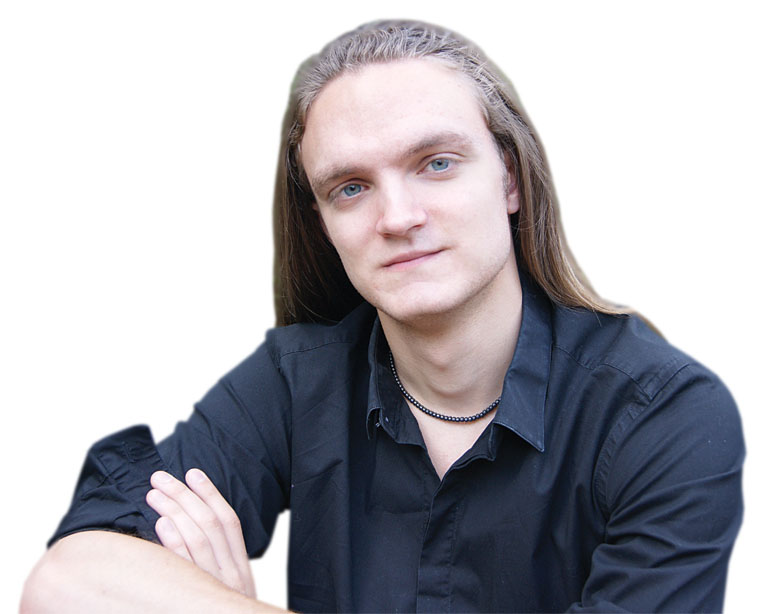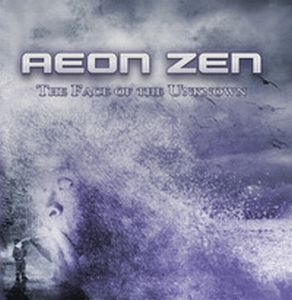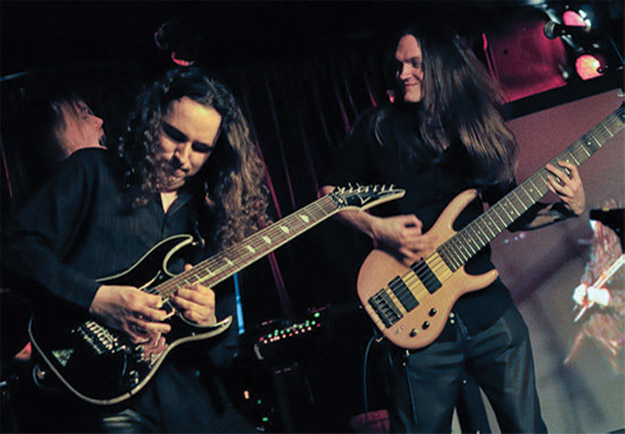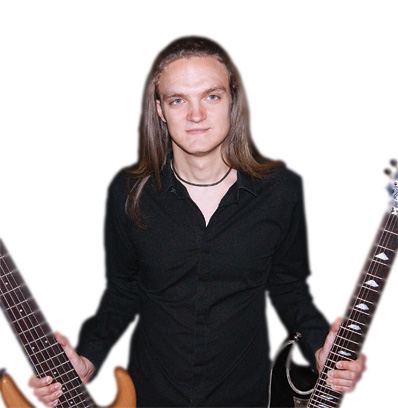|
Interview AEON ZEN
(November 2010, text by Henri Strik, edited by Peter Willemsen, pictures provided by Aeon Zen) When I for the first time heard anything from Aeon Zen, I immediately wanted to know more about the man behind this name. Both on Aeon Zen’s debut album A Mind’s Portrait and the latest release The Face Of The Unknown (see review) almost all the instruments are played by Rich Hinks. This is a great achievement that deserves a larger audience. Hopefully this interview will attract more devotees of true progressive rock.
Would you please tell us a bit about yourself first? “I live in Cambridge, UK and I’m now 21 years old. My life is busy with music eight days a week as I really enjoy that. I started Aeon Zen in 2008 and on the recordings I play guitars, bass guitar, keyboards, drums and some vocals. I also like the production side of things, so I produce my albums too. I’m currently studying music at Goldsmiths University London.”Before that, did you have any musical education or musical lessons? “My first experience with a musical instrument was when I started to play piano at the age of five. I took lessons and exams until I was eighteen. I also started playing saxophone aged seven and I also had lessons and exams in that too. So over the years I built up a good understanding of music theory as well as the practical aspects of playing the instruments together with live concert experience. When I was fifteen I decided I wanted to broaden my musical spectrum, so I started to teach myself to play the bass guitar and shortly after that I took up the electric guitar as well, also self-taught.”Why don’t you release your music under your own name, but as Aeon Zen and what does this name exactly mean? “Well, I wanted a name that attracts people’s interest. It’s different from most band names and also represents the varying sounds and styles of my music, not that I think my own name isn’t interesting (laughs), but I think Aeon Zen was the perfect choice to portray this. The name Aeon Zen also covers A to Z, because I try to get as many different styles in the music as I can. I interpret the name to mean an eternal state of bliss, which is always the goal of my music. I just hope I manage to get somewhere near that level.”When did you start writing songs for The Face Of The Unknown and when did you start the recordings? “I started to work on The Face Of The Unknown right after the release of A Mind’s Portrait. A few ideas in some songs are a couple of years old, but these were things I still wanted to use and just didn’t fit on A Mind’s Portrait. I’m constantly writing music so the majority of the writing for the album was spread out probably between June 2009 and March 2010. The recordings were done in my own studio so I can record whenever I want. The recordings were also spread out over a while, but I think it took a total of about a month.”On the album you almost played all instruments yourself. What’s the best instrument for you to write a song or to record music? “It all depends on the song really. Sometimes I come up with a piano part and then the song builds from there; at other times it can be a guitar riff or even a vocal melody. I like to write music on the computer scoring out all the notes; that way I can put all the instruments in and I can make small adjustments without having to make a million recordings of each track.When I’m recording I usually start with drums or bass, and then work in the rest of the instruments depending on the song.” Did you play the drums on a real drum kit or did you use a drum computer or samples from a keyboard? “I recorded the drums on The Face Of The Unknown on a Roland TD-20KX electronic drum kit. This is much easier production wise than recording a large drum kit and spending hours tuning and tweaking drums. Moreover, it gives me a huge amount of control over the drum sound and it just sounds fantastic. To anyone looking to produce quality recordings I really recommend trying the Roland electric kits.”Was it difficult to get all the great guest singers on the album and why did you choose them? “No, it wasn’t. I chose Nick D’Virgilio (Spock’s Beard), Jem Godfrey (Frost*), Michael Eriksen (Circus Maximus), Andi Kravljaca (Silent Call) and Jonny Tatum (Eumeria) as I like their styles and ranges, and they would be able to do a great job with my lyrics and melodies.”Did you have these guest vocalists in mind while writing the songs? “When I’m writing a song, I always have an idea of what sort of vocal style I want, so I don’t always have the exact singer in mind. I then listen to the instrumental version of each track and decide who would be best suited for it.”Did you visit all the guest singers to record their parts or was it done with the help of internet? “All but one, as he is local to me, were done over the internet. It’s much easier that way and it also allows the guest singers to record in their own environment how they work best. I send over the lyrics and vocal melodies for them to sing, so they have all the materials they need to record their parts without me hanging around pressing ‘record’ (laughs).”Does the album have a certain theme or concept? “Not really, no. I mean not in a lyrical sense at least. There are certain songs that tell stories throughout. However, I did concentrate on making sure the album flows and has ups and downs like a sort of musical story, so it stays interesting throughout and grips the listeners from beginning to end.” | ||||
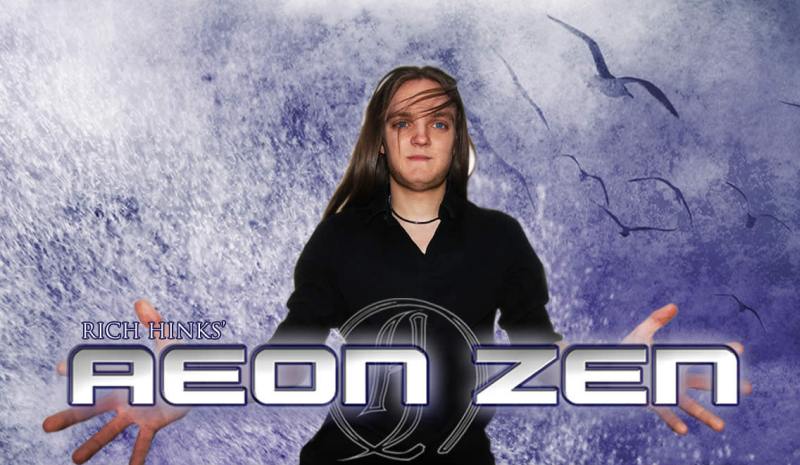
| ||||
|
What are your inspirations when you write the lyrics for a song? “It can be anything, really. Sometimes I have an idea of a concept or story for a certain song, or sometimes it can just be a cool sounding phrase that pops into my head. A song can be based around that. Whatever inspires me at the time!”The beautiful art work was done by Mattias Norén. Was it difficult to get him for the job? “Well Mattias also produced the cover art for A Mind’s Portrait, so I already had a good working relationship with him, so in that sense it was very easy.”Did the album turn out to be as you wanted it to be? Would you do things differently if you could do it all over again? “No, I’m really pleased with the album. There isn’t anything on there that I listen to now and think ‘I wish I’d done that differently’ so that’s a good sign. Of course, there are countless things that can be added indefinitely, but you have to finish the work some time and I’m very happy with the final product.”You have also started a live version of Aeon Zen. Why did you do that and would you please introduce the musicians? “I really wanted to get out playing this music live. Multi-instrumentalist’s projects rarely seem to get played live, at least in this type of genre, and I saw it as a challenge to recreate the album sound. It’s a good way to broaden the awareness of Aeon Zen and I love playing of course! There’s no set line-up for Aeon Zen live, but it has involved several musicians that have appeared on Aeon Zen albums including Andi Kravljaca of Silent Call, Matt Shepherd and Cristian Van Schuerbeck and I’m sure guests will continue to be a part of the live show.”Are you going to record the next Aeon Zen-album with the musicians of your live band or can we expect a live album very soon? “I’m already writing new material, but it’s too soon to really decide what might be next. As for a live album, I don’t know yet, we will have to wait and see what happens.”What are the future plans for Rich Hinks and Aeon Zen? “I hope to get out playing some festivals and great shows with Aeon Zen and take this music to as many people as possible. And as I said, I’ve already started work on some new material for the next album, so everything is always in full swing!”Finally can you give me some web info for everybody who wants to know more about Aeon Zen? “You can find and listen to Aeon Zen online at: http://www.aeonzen.com and please add Aeon Zen to Facebook, Myspace and Twitter at:http://www.facebook.com/aeonzen http://www.myspace.com/aeonzen http://www.twitter.com/aeonzen Good luck with Aeon Zen and thanks for answering my questions! “Thank you, it was great to talk to you. And I hope everyone out there will enjoy reading the interview.”Album Review on the Backgound Magazine website: 'The Face Of The Unknown' |

